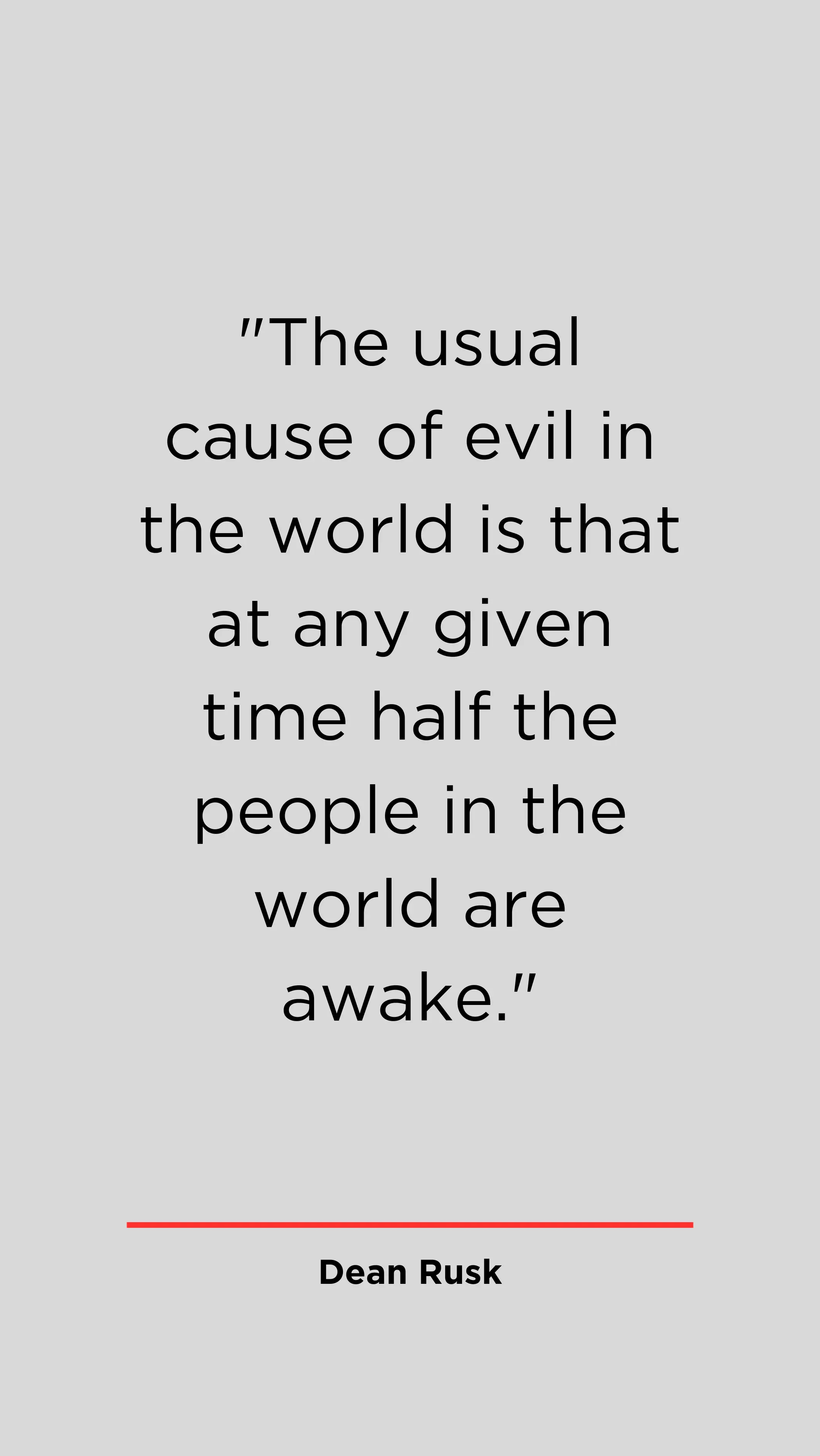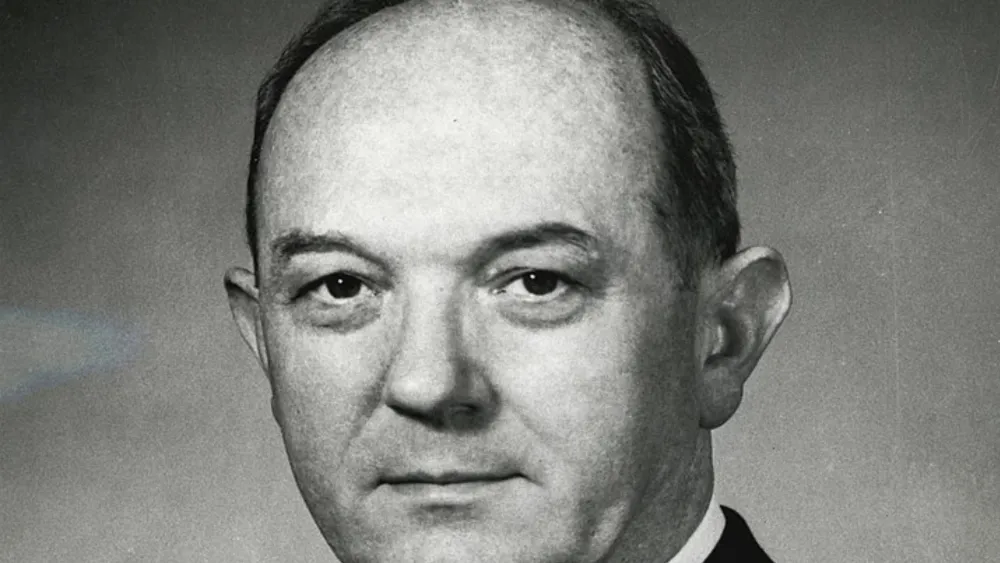David Dean Rusk, who served as the U.S. Secretary of State from 1961 to 1969, played a significant role during the Cold War era. Born into a modest family in Georgia, he excelled academically, studying in England and later serving in World War II. He held key government positions and even led the Rockefeller Foundation. Rusk is known for playing a role in the division of North and South Korea. Furthermore, He advised Presidents Kennedy and Johnson, notably during the Cuban Missile Crisis and the Vietnam War. After leaving office, he taught international relations at the University of Georgia School of Law.
The Path to Davidson College and Oxford
Rusk’s upbringing in Georgia, with its deep-rooted sense of community and responsibility, instilled in him a profound commitment to public service. It taught him the principles that would guide his diplomatic journey.
His academic pursuits at Davidson College and later at St. John’s College, Oxford, further refined his intellectual capabilities. It also nurtured his understanding of international affairs. As a Rhodes Scholar, Rusk encountered a diverse range of perspectives.
Forging a more comprehensive worldview that would be vital in his future diplomatic roles. The time he spent in England influenced his diplomatic career. Moreover, it affected the big decisions he later made.
Dean Rusk: Path to Diplomatic Prominence
Armed with his Harvard law degree, Dean Rusk’s entry into diplomacy marked the commencement of a distinguished career in service to his country. In 1935, he joined the United States State Department. He commenced a decades-long journey dedicated to the pursuit of diplomacy. Rusk’s dedication to his work was clear from the outset. Furthermore, his exceptional expertise soon caught the attention of his superiors.
This recognition propelled him on a rapid ascent through the ranks of the State Department. So, it set the stage for a remarkable and influential diplomatic career.
Shaping the Post-War World: Dean Rusk and the United Nations
Throughout World War II, Dean Rusk was a dedicated and influential figure within the State Department. He channeled his expertise toward Far Eastern affairs.
Moreover, his commitment to understanding the region’s complexities set the stage for his role in shaping American foreign policy.
After World War II, Rusk played a crucial part in creating the United Nations. He worked with prominent figures like Secretary of State Edward Stettinius.
Which aimed to promote peace and cooperation among nations in the aftermath of a devastating global conflict. Rusk’s work during this crucial period showcased his ability to navigate complex diplomatic negotiations. Furthermore, he dedicated himself to creating a more stable and harmonious world order.
“Thirteen Days” of Tension: The World on the Brink
.One of the most significant periods in Dean Rusk’s career as Secretary of State was the Cuban Missile Crisis of 1962. This event, often referred to as the “Thirteen Days,” brought the world to the brink of nuclear war during a tense standoff between the United States and the Soviet Union. Rusk’s role during these harrowing days was instrumental in preventing catastrophe.
Rusk’s calm and steady demeanor under the immense pressure of the crisis was a testament to his character and expertise. He provided invaluable counsel to President John F. Kennedy. Moreover, he helped to navigate the treacherous waters of international diplomacy.
The crisis showcased Rusk’s commitment to resolving conflicts peacefully, even in the face of threats. His ability to keep a level head and work toward a diplomatic solution was a defining moment in his career. So, it had a profound impact on global stability.
One of the most significant periods in Dean Rusk’s career as Secretary of State was the Cuban Missile Crisis of 1962. This event, often referred to as the “Thirteen Days,” brought the world to the brink of nuclear war during a tense standoff between the United States and the Soviet Union. Rusk’s role during these harrowing days was instrumental in preventing catastrophe.
Rusk’s calm and steady demeanor under the immense pressure of the crisis was a testament to his character and expertise. He provided invaluable counsel to President John F. Kennedy, helping to navigate the treacherous waters of international diplomacy.

Rusk’s Cold War Ideals: The Containment Doctrine in Action
Dean Rusk’s time as Secretary of State was not without controversy, chiefly due to the escalation of the Vietnam War. His steadfast support for American involvement in Vietnam marked a significant departure from his reputation as a diplomat of moderation. Rusk’s stance made him a polarizing and controversial figure, as many critics vehemently disagreed with his position.
Opponents said that Rusk’s support for the war was wrong and caused terrible outcomes for the United States and Vietnam. The war lasted a long time, cost a lot, and led to many deaths and resource strain.
Yet, Rusk’s stance rested on a belief in containing communism, a key part of American Cold War policy. He believed that stopping communism’s spread was vital for protecting American interests and global stability.
There were controversies about his position in the Vietnam War. But, his dedication to his country’s welfare and his belief in containment principles are important parts of his legacy.
The End of an Era: Remembering Dean Rusk and His Legacy
After leaving the State Department in 1969, Dean Rusk remained involved in academia, teaching, and writing on international relations. Moreover, his memoir, “As I Saw It,” provided valuable insights into his experiences and the complex decisions he had to make during his time in office.
In his lifetime, people recognized Rusk’s contributions to U.S. foreign policy. Even colleagues who disagreed with his policy views held him in high esteem and awarded him accolades. This includes the Presidential Medal of Freedom.
Dean Rusk passed away on December 20, 1994. He left a lasting legacy as a statesman who navigated the treacherous waters of international diplomacy during the Cold War.
A Career in Context: Assessing Rusk’s Vietnam War Stance
Dean Rusk’s life and career show the challenges of being a statesman. While he faced criticism for the Vietnam War, we should consider his whole career in the context of his time.
Rusk’s dedication to his country and his commitment to using diplomacy showed his deep understanding of the world’s complexities. In a time of global tensions and superpower struggles, he was a steady hand in American foreign policy.
He reminds us of the importance of experienced diplomats and statesmen in keeping world peace and stability. His life’s work is a compelling example of making decisions with big consequences. Furthermore, he recognized the vital role of diplomacy in solving international conflicts.




